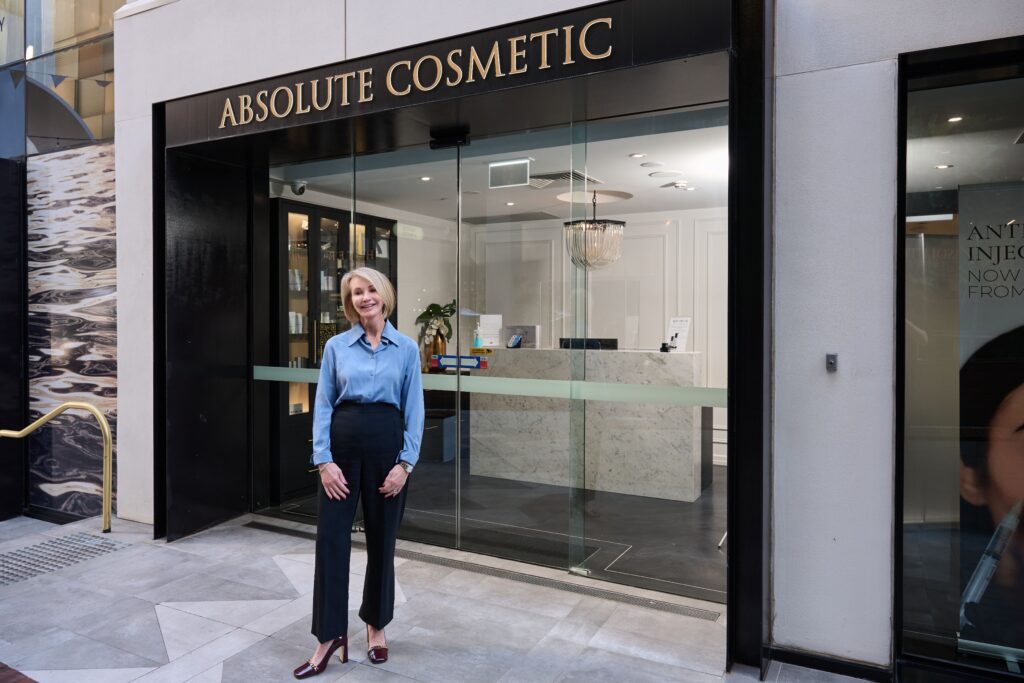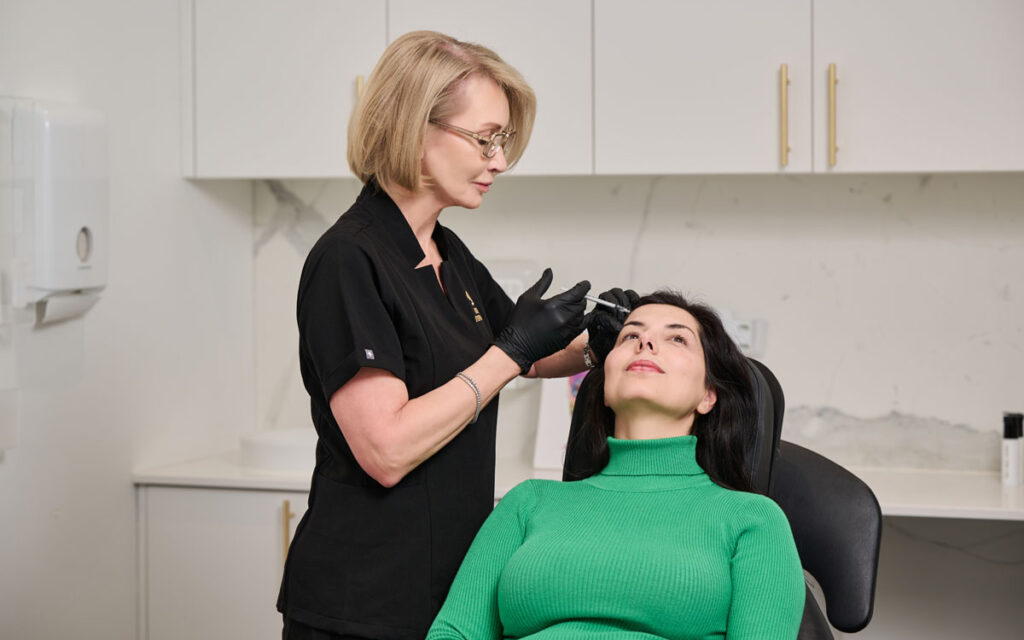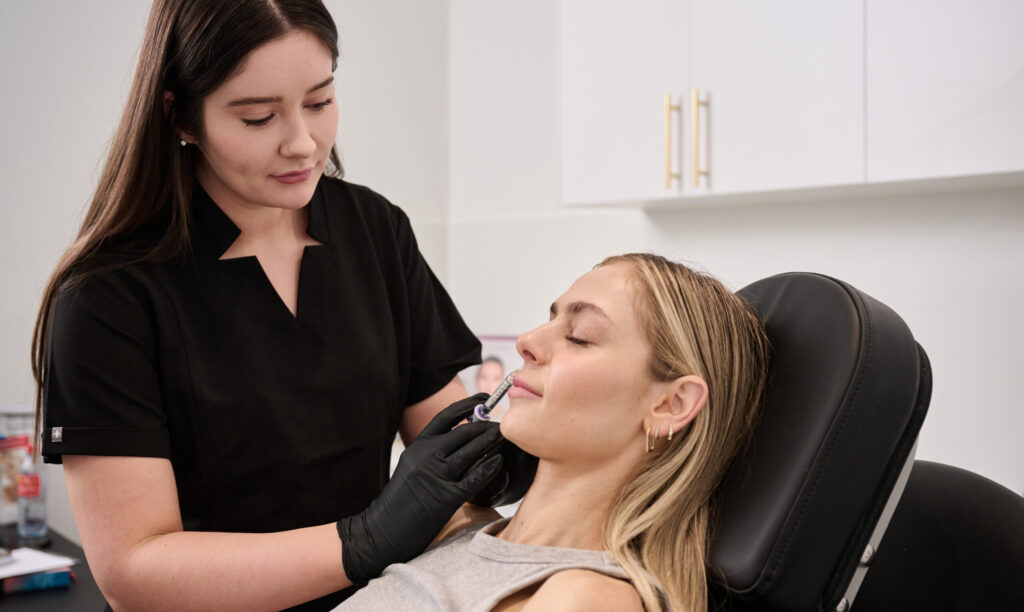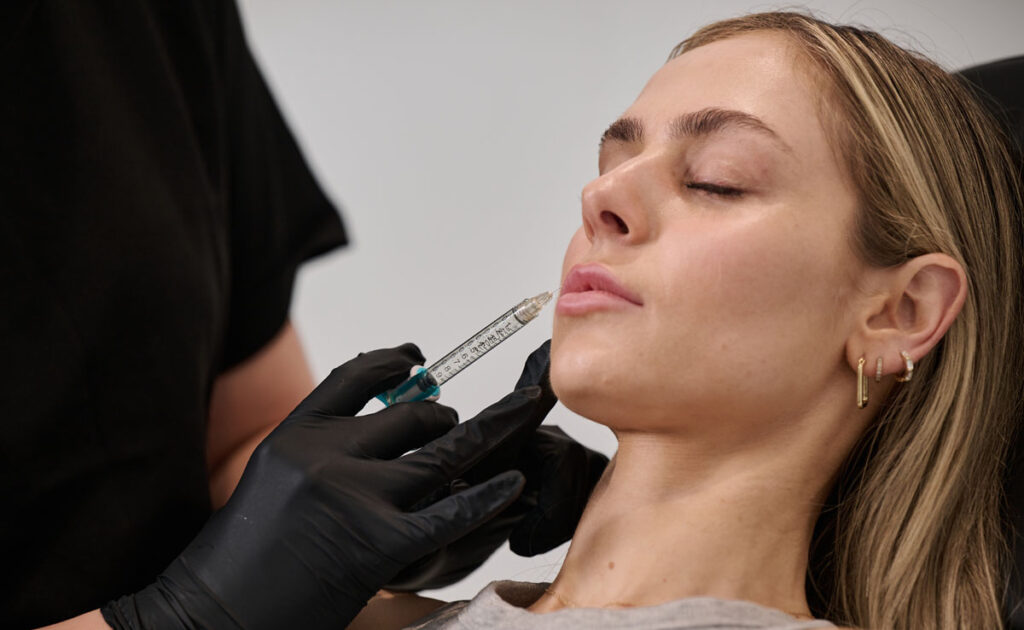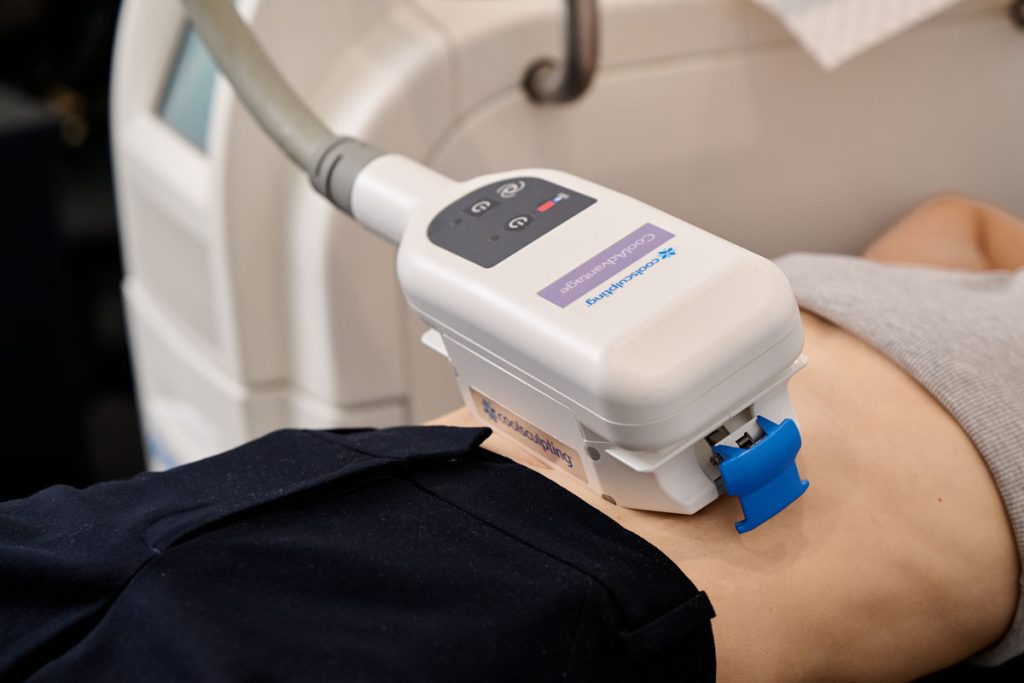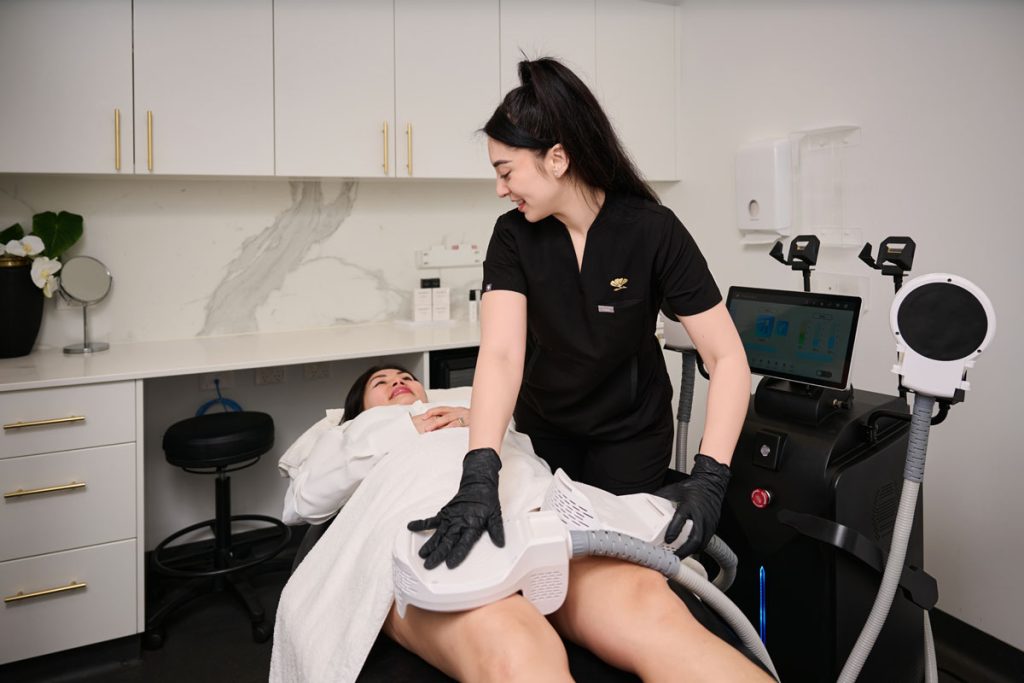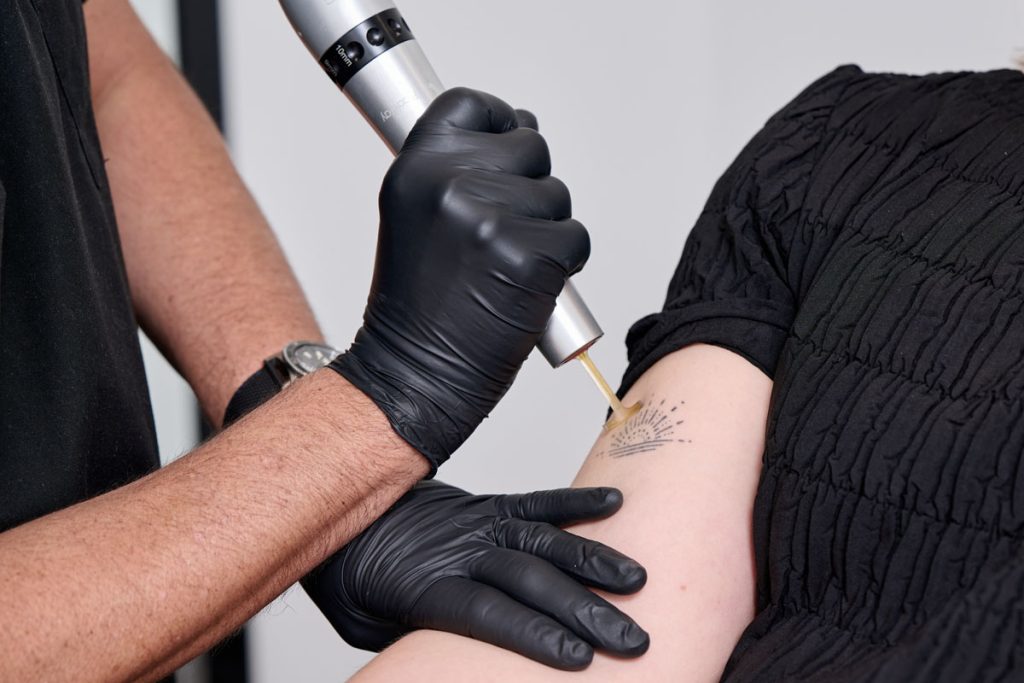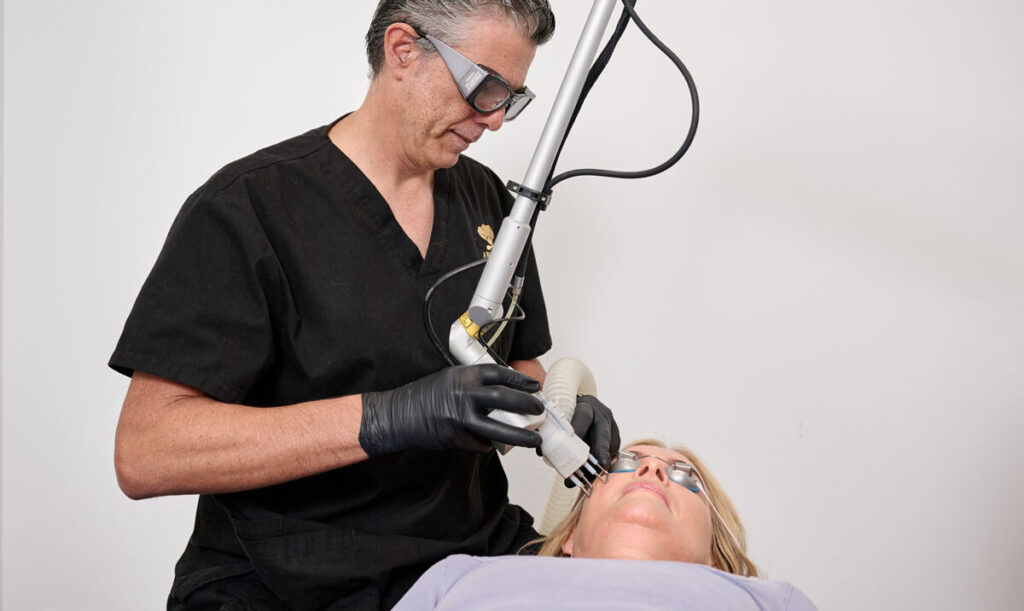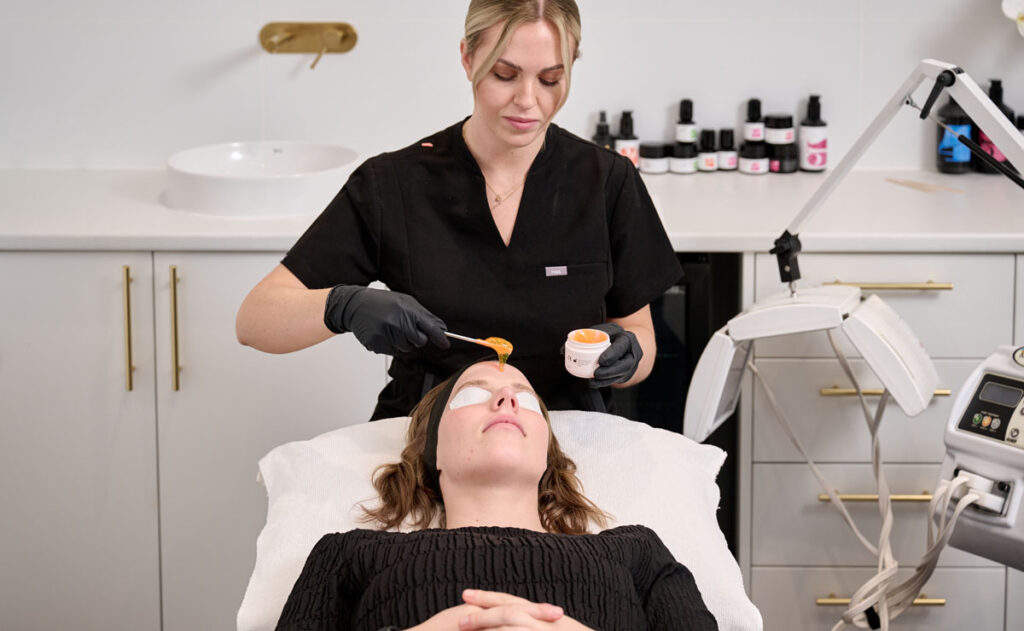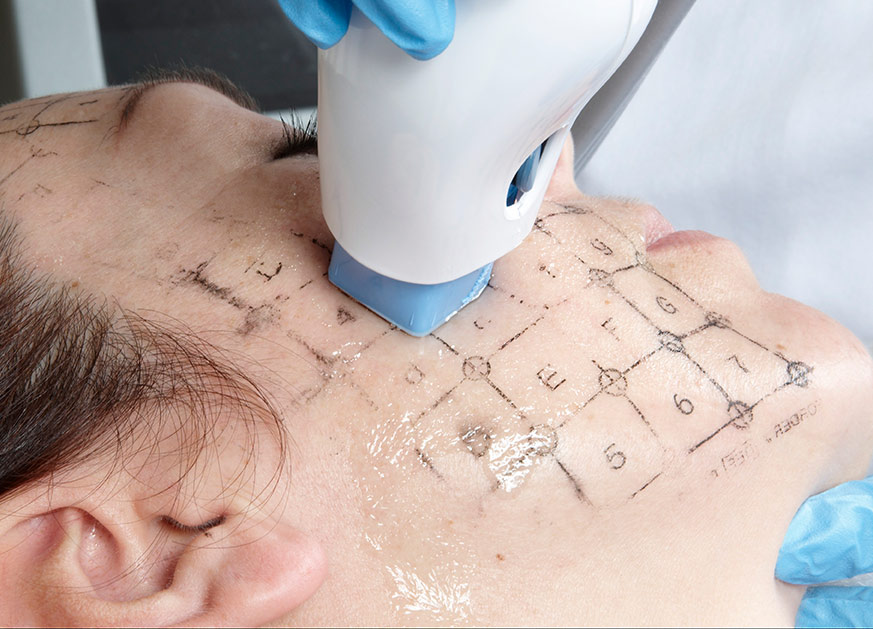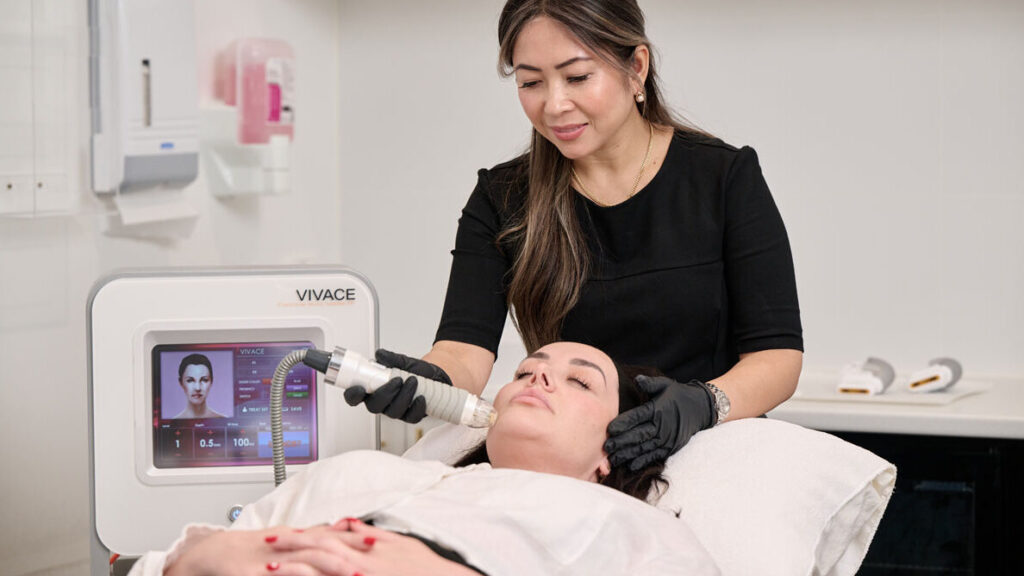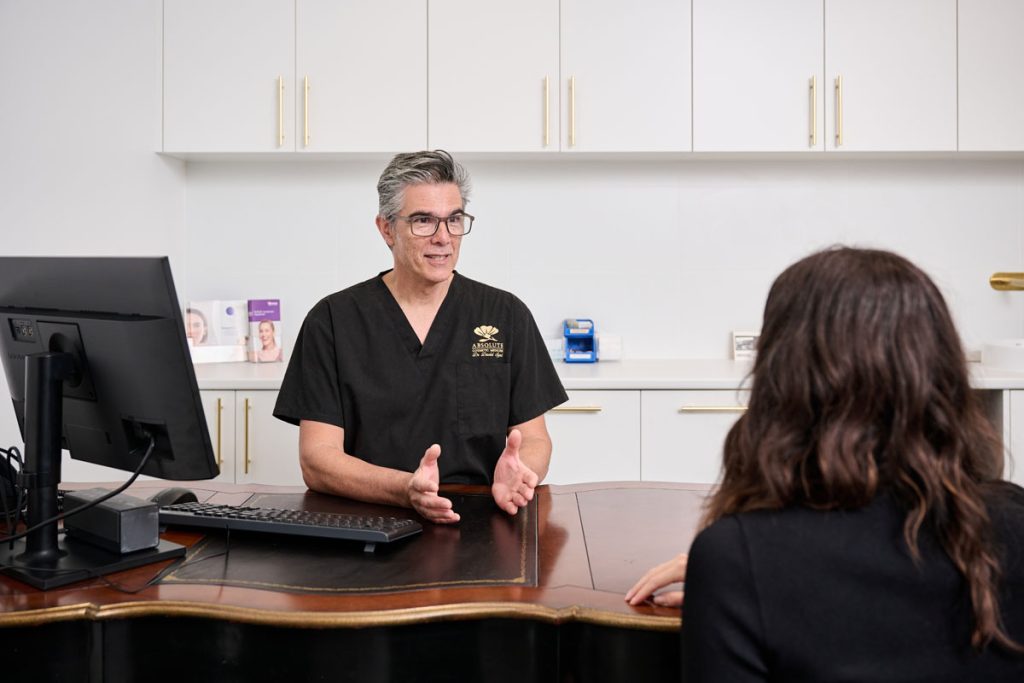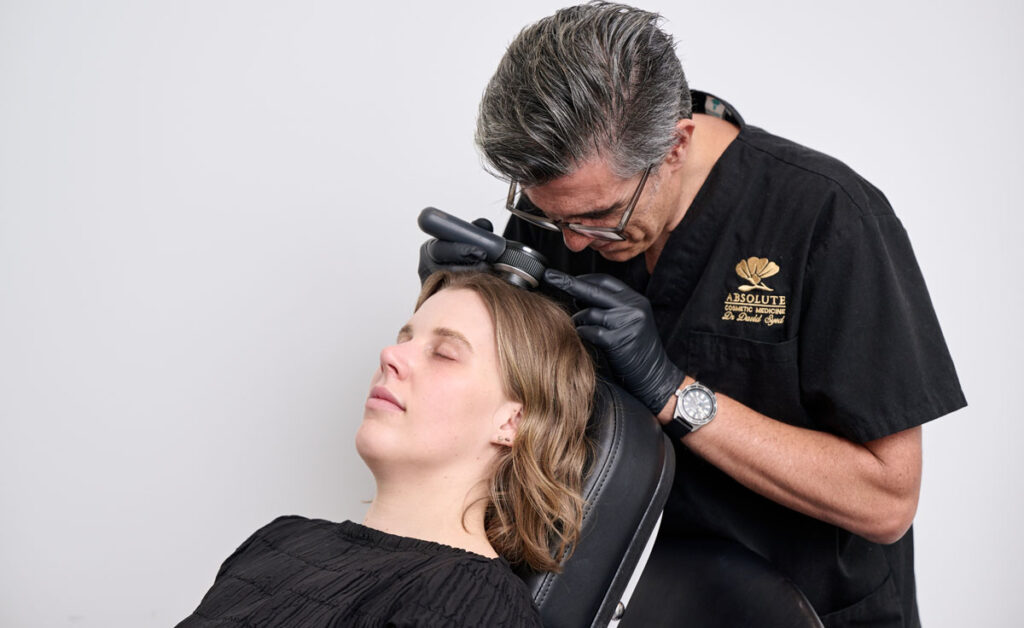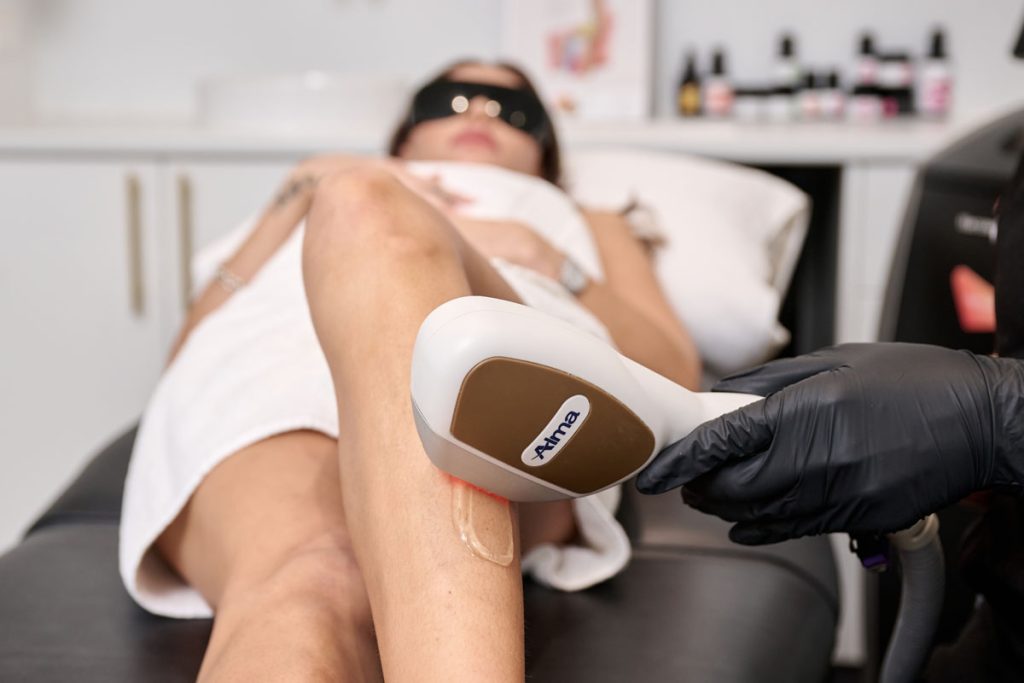ABSOLUTE COSMETIC on the TGA’s New Cosmetic Injectable Advertising Rules:
ABSOLUTE COSMETIC, led by Medical Director Dr. Glenn Murray and Senior Injector Stephanie Murray, brings over 20 years of full-time cosmetic experience. Here, our team explores the significant changes in the advertising guidelines for cosmetic injectables, as announced by the Therapeutic Goods Administration (TGA), emphasising our commitment to ethical practices in the dynamic field of aesthetic care.
Long-standing terms used in advertising, from “anti-wrinkle injections” to “dermal fillers,” now forbidden.
The world of cosmetic injectables is about to undergo a seismic shift, as the Therapeutic Goods Administration (TGA) unrolls further restrictions that could fundamentally alter the way businesses in this sector promote their services. As of the recent announcement, a barrage of long-standing terms used in advertising, from “anti-wrinkle injections” to “dermal fillers,” has been relegated to the ‘forbidden’ category. A new era of communication that is both compliant and effective now dawns upon the industry.
Regardless of whether you are a practitioner deeply rooted in the world of cosmetic medicine or a consumer looking for the latest wrinkle-reducing treatments, the implications of these changes resonate deeply. In this comprehensive exploration, we aim to unpack the TGA’s announcement, outline its impacts on the industry, and provide actionable insights for successfully navigating these turbulent marketing waters.
The Tightening Grip on Cosmetic Injectable Advertising: What You Need to Know:
The TGA’s latest proclamation essentially boils down to a ‘CAN DO’ and ‘CANNOT DO’ list for industry marketing. In the era before these amendments, clinics and practitioners could utilise an expansive lexicon to communicate the services they provided. Phrases like “wrinkle relaxers,” “fillers,” and “injectables” were commonplace across media platforms. However, these comfortable marketing footholds are now off-limits. The TGA has mandated a realm of ‘product agnosticism’ in advertising content. The deconstruction of once-acceptable verbiage means a mammoth revamp for advertising strategies across the board.
Confused about where to start with the TGA’s new advertising rules? Worry not! We’ve broken it down for you with an easy-to-follow ‘DOs and ‘DON’Ts’ guide.
What You CAN Do:
- Adhere to TGA Guidelines: Ensure all advertising complies with TGA and AHPRA policies.
- Advertise Services Generally: You can promote your clinic’s services without specifying products, for example, saying:
“Our clinic can provide consultations on reducing the appearance of wrinkles.”
*This statement aligns with the TGA’s revised policy for advertising cosmetic services, as per the letter dated January 15, 2024, reference D24-43509, which advises promoting services without specifying products.
- The TGA letter, mentions that as of December 18, 2023, previous guidelines were removed from their website. However, it appears that the updated guidance is not yet available on the referenced TGA Advertising for health services webpage. The TGA plans to publish the revised guidelines by mid to late January 2024 following targeted consultation. The letter states “The guidance will clarify that legislation will be applied consistently across all industries and followed by an educational webinar in February 2024.”
- In line with the current TGA guidance, you may consider using similar language as exemplified below, while bearing in mind that the complete TGA guidelines have not yet been officially released.
*Please note that the examples provided are not confirmed to be acceptable until the full guidelines are made available.
- “Our clinic can provide consultations on reducing the appearance of sagging skin.”
- “Our clinic can provide consultations on aiming to improve skin texture and tone.”
- “Our clinic can provide consultations on increasing the appearance of lip volume.”
- “Our clinic can provide consultations on increasing the fullness of cheeks.”
- “Our clinic can provide consultations on minimising the appearance of age spots and pigmentation concerns.”
What You CAN NOT Do:
- Do NOT use terms such as:
- “Anti-Wrinkle Injections”
- “Dermal Fillers”
- “Wrinkle-Reducing Injection”
- “Wrinkle Relaxer”
- “Filler”
- Do NOT refer to a Schedule 4 substance or a product containing that substance: Referring to these, even in general terms such as the treatment name, when it relates to a Schedule 4 product, could be considered unlawful. This is because such terms indirectly allude (by drawing the audience’s mind to) to prescription-only products. For example, standalone terms like the following are likely to require removal from all advertising platforms:
- “Cheek Filler”
- “Lip Filler”
- “Face Filler”
- “Liquid Facelift”
- “Injectables”
- “Facial Injections”
- “Wrinkle Relaxer”
- “Volume Restoration Injections”
- “Collagen Stimulators”
- “Soft Tissue Fillers”
- “Non-Surgical Injectable Rhinoplasty”
- “Injectable Chin Augmentation”
- “Jawline Definition Injections”
- “Under-eye Filler”
- “Tear Trough Filler”
- “Rejuvenation Injectables”
- “Cosmetic Injectables”
- “Cosmetic Injections”
*Important Notice: This list is intended to provide representative examples and is not an all-encompassing enumeration of the relevant terms and concepts.
- No Prescription Medicine Advertising: Do not promote services as a means to obtain prescription medications.
- Medical Devices: No unlawful advertising for medical devices including machines, for use in conjunction with Schedule 4 substances, is also subject to the advertising requirements under the Therapeutic Goods Act 1989. This includes medical devices used in the wellness and beauty industries including those intended to alter the body’s performance and appearance.
Understanding the Impact on Patients:
This shift in advertising standards means patients need to be more proactive and informed when searching for cosmetic treatments. The typical search terms like ‘fillers’ or ‘wrinkle relaxers’ will no longer align with website content or online advertising, potentially leading to confusion. Clinics and practitioners will play a crucial role in educating patients, ensuring they are well-informed about the services and treatments they seek, despite the changes in advertising terminology.
Important Actions:
- Stay Informed: Keep up to date with the TGA’s latest guidelines. The TGA will publish revised guidance on advertising for health services by late January 2024, followed by an educational webinar in February 2024.
- Review Advertising Materials: Regularly check your materials for TGA and AHPRA compliance.
*Disclaimer: The following list of advertising examples is provided to assist in reviewing and updating your advertising materials. Please note that this list is not all-encompassing and may not cover every potential term or phrase that could be subject to advertising regulations.- Internet, including websites
- Social media, including but not limited to Instagram, Facebook, TikTok, Linkedin, Threads, Twitter AKA X, YouTube, Snap Chat, Pinterest, Reddit, WeChat, Tumblr, Twitch
- Television or cinema
- Radio
- Newspapers
- Flyers
- Billboards
- Books (if the book is promoting a particular cosmetic surgery provider)
- Pictorial representations
- Designs
- Mobile communications or other displays
- All electronic media that promotes a particular cosmetic surgery provider
- Business cards, announcement cards
- Office signs and similar
- Letterheads on public-facing documents used to promote a particular cosmetic surgery provider
- Public and professional directory listings or similar professional notice (such as patient recall notices)
Adhering to the AHPRA December 2020 Guidelines: Navigating Current and Official Advertising Standards for Non-Surgical Services:
As we await the release of new guidelines by the TGA, it is imperative for healthcare professionals, especially in the non-surgical sector, to familiarise themselves with the existing official AHPRA Guidelines for advertising a regulated health service established in December 2020. These guidelines, while dated, remain the current authoritative framework for advertising practices within our industry. These guidelines serve as the current standard for advertising practices in the healthcare field. They highlight specific terms and phrases that, if used incorrectly, could result in a breach.
Below is a breakdown of these key points, which are vital for maintaining ethical and compliant advertising:
- Use of Titles: Words like: “specialist”, “specialises in”, “specialty”, and “specialised” should only be used when officially recognized. Incorrect use can be misleading.
- Claims of Competence and Qualifications: Advertising should avoid making misleading claims about registration, competence, qualifications, or endorsements.
- Treatment Effectiveness: It’s important to refrain from unsubstantiated or exaggerated claims about the effectiveness of treatments.
- Comparative Statements: Claims that imply superiority should be backed by evidence; otherwise, they could be considered deceptive.
- Creating Expectations: Advertising should not create unreasonable or misleading expectations about treatment outcomes.
- Expertise and Accreditation: Titles that imply expertise must be supported by recognized accreditation.
- Guarantees and Risk-Free Services: Avoid claims that suggest services are completely risk-free or guarantee specific outcomes.
Gear-Up Guidance: A Systematic Approach to Compliance:
Adopting a systematic approach is key, as every aspect of a clinic’s marketing collateral, down to the most granular social media post, must be reviewed and potentially revised. By working methodically through the compliance process, businesses can ensure that their messaging remains effective while respecting the line in the sand drawn by regulatory authorities.
Conclusion: Navigating the Winds of Change:
The TGA’s decision to tighten the reins on cosmetic injectable advertising is a watershed moment for the industry. Both patients and practitioners must embark on a collaborative journey of adaptation. For industry players, this means reimagining marketing endeavours to adhere to the new guidelines without sacrificing the vibrancy and uniqueness of their brands. Patients must stay informed and engaged, fostering a culture of communication that transcends the allure of specific product claims.
In the wake of these transformations, the industry has an opportunity to establish a new benchmark for responsible cosmetic advertising. By banding together to educate, inform, and innovate, we can fashion an advertising framework that not only complies with the stringent standards set forth but also reflects the industry’s enduring commitment to patient well-being and authenticity.
If this shift presents physical or mental challenges for your business, do not fear. Remember, you are steering a ship that has navigated uncharted waters before; with a strong team around you, anything is possible! Engage your team, educate your patients, and reimagine your marketing. The future of cosmetic injectable advertising beckons, and in it, compliance and creativity will not simply coexist—they will thrive together harmoniously. Your reaction to these modifications goes beyond a mere legal requirement; it presents an opportunity to lead by example.
Embrace this time of transition as an opportunity to shape a marketing narrative that champions integrity, patient well-being, and, above all, patient satisfaction.
We encourage you to delve deeper into the particulars of the TGA’s guidelines and begin the process of reorienting your marketing compass. The journey may be treacherous, but the destination promised is that of a landscape resplendent with trust and authenticity. Bon voyage!
Listen on our Podcast: Predictions for 2024
Spotlight: ABSOLUTE COSMETIC, Perth, W.A.
Operating out of five clinics across Perth, ABSOLUTE COSMETIC is a testament to the dedication and experience of Medical Director Dr. Glenn Murray and Senior Injector Stephanie Murray. With over 20 years of full-time experience in aesthetic medicine under their belt, a holistic approach to aesthetic care includes a range of treatments, including non-surgical options to surgical procedures performed in our licensed day hospital.
We regularly visit Bunbury, Geraldton, Kalgoorlie, Karratha, and Mandurah. If you are not located near one of our clinics, we can offer Skype, FaceTime and Whatsapp consultations to help you start your journey with ABSOLUTE COSMETIC.






